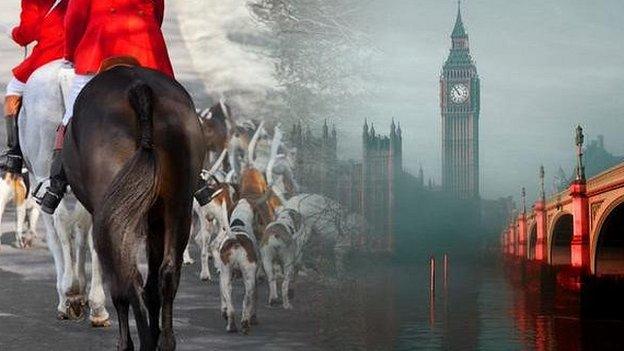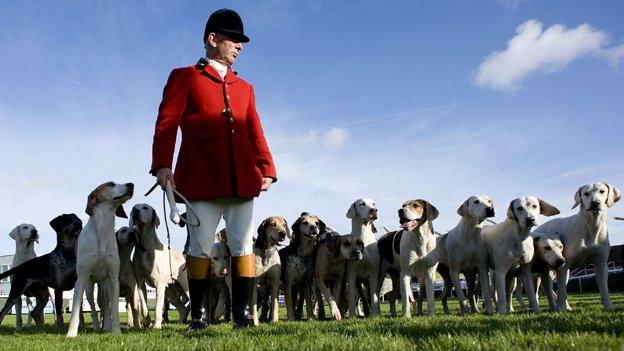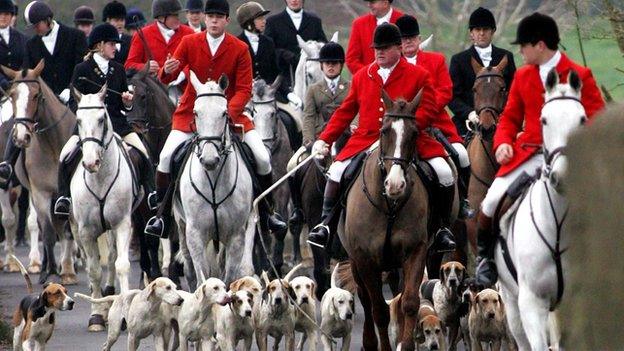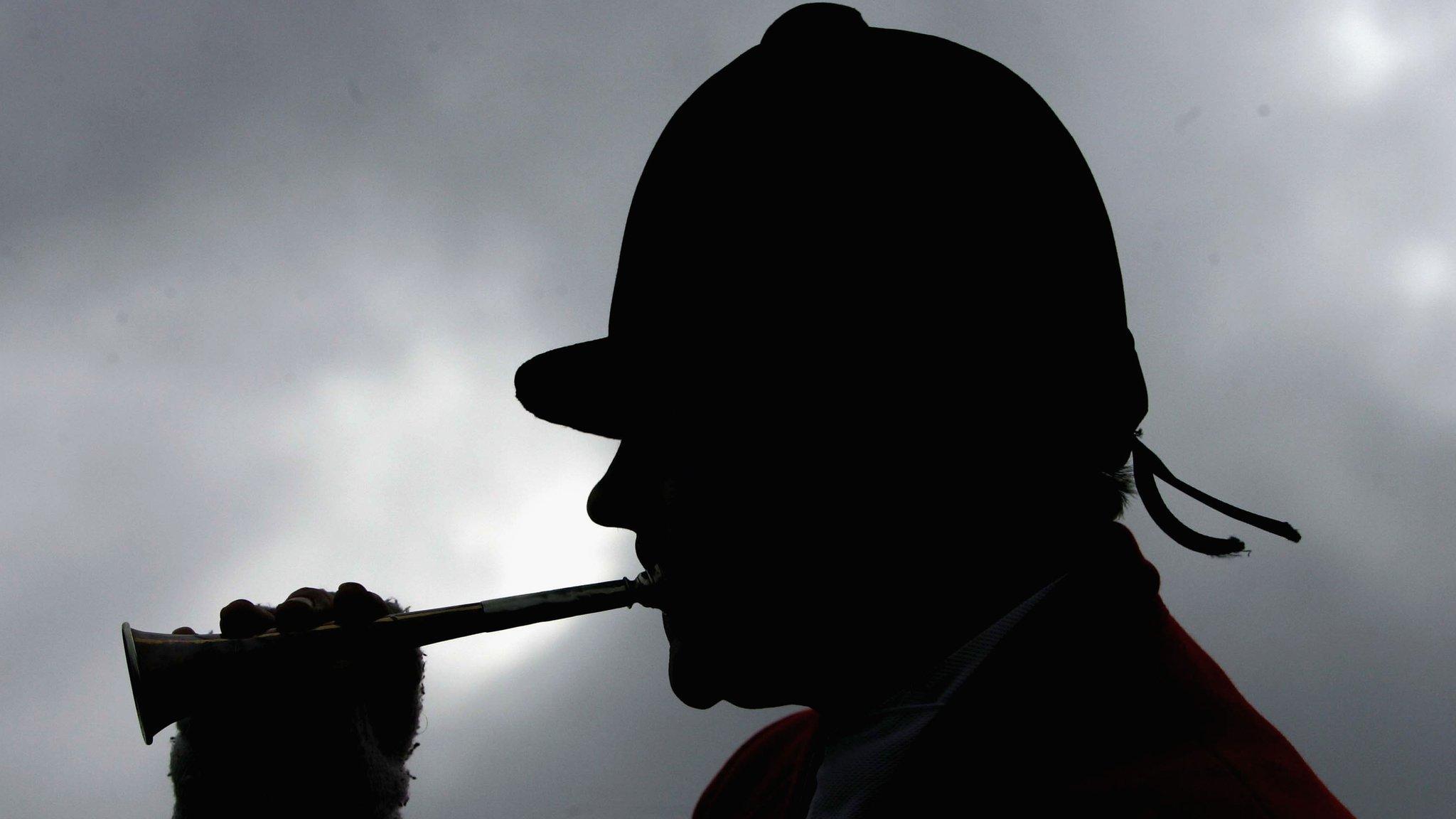The SNP and fox-hunting in England and Wales
- Published

The Conservatives have had to postpone their plan to water down the fox-hunting ban in England, after the Scottish National Party decided to oppose it, amid a constitutional row. Here's a guide to what's going on.

What was the plan?
The Conservatives promised in their election manifesto to give MPs a free vote on repealing the Hunting Act. They won the election and last week announced plans to give MPs a vote on amending the law to increase the number of dogs allowed to flush out foxes.

Did it look like MPs would back that change?
Because the measures proposed were not repealing the act as a whole, it was thought that the government could push the vote through even if a dozen or more Conservative MPs opposed it - mainly because the Hunting Act covers only England and Wales, so SNP MPs would be expected to abstain in line with their usual stance on issues not directly affecting Scotland.

So what changed?
The Scottish National Party, which won 56 out of 59 seats in Scotland at the recent general election, has a long-standing position of not voting at Westminster on issues that do not affect Scotland. But the party decided to change that position and announce it would vote against the hunting proposals.

Why did the SNP change its mind?
Party leader Nicola Sturgeon said there were three reasons:
First, anger at the government's plans to bring in English votes for English laws, which the SNP believes downgrades the status of Scottish MPs
Secondly, the belief that there might be a knock-on effect in Scotland, as it would end the case for the fox-hunting law in Scotland being tightened and brought into line with that in England and Wales
Thirdly, Ms Sturgeon said there had been "overwhelming demand" from people in England for the SNP to vote on the issue and she wanted to live up to their general-election pledge to form a "progressive alliance"

So it is not all about the merits of fox hunting?
That is right - this has now become part of a constitutional row that has been brewing for months, if not years.

What is the constitutional row about?
It is basically the longstanding question of whether Scottish MPs should be allowed to vote on issues that affect only England and Wales, when English and Welsh MPs have no say on the same issue in Scotland (in technical terms known as the West Lothian question). You may remember the Conservatives spent much of the general election warning that Labour would be able to govern only if it did a deal with the SNP, a party whose founding goal is an independent Scotland.

So why did it come to this?
The Conservatives defied the polls to win a 12-seat Commons majority in the election (which was widely put down to the success of the anti-Labour/SNP warnings). They have pushed ahead with their plans to answer the West Lothian question by changing the way the Commons works, to give MPs for English seats the chance to veto laws that would affect only England. Although all MPs, including Scottish ones, would still be able to vote at the key stages of legislation, the addition of an English veto (or English and Welsh veto for measures affecting England and Wales) has led to the SNP saying the new measures would make Scottish MPs second-class ones.

What did No 10 say about the SNP change of mind?
Announcing that the vote was to be delayed, a Downing Street source said: "This happened because Nicola Sturgeon has done a 180-degree U-turn. Her actions speak for themselves. That's why we are in the position we are in."

So are the fox-hunting changes dead?
No. The government says that it now plans to delay the fox-hunting vote until after it brings forward its revised plans for English votes for English laws (a vote which has itself been delayed until September, after some Conservatives expressed unease at the first draft).

What difference will a delay make?
At the moment, it does not look like the English votes plan would make any difference at all to a vote on changing the hunting laws. One political difference would be that the English votes plan would have become law, so the hunting vote would no longer be part of a campaign against it.

What happens next?
SNP leader Nicola Sturgeon says the hunting delay shows Prime Minister David Cameron has only a thin majority, and she has warned that her party will be prepared to vote on other issues that do not directly affect Scotland, in the months ahead. Having moved from a handful of MPs in the past to 56 now, the SNP could have a crucial say on issues where a few Tory MPs decide to rebel. Meanwhile the SNP's behaviour will have strengthened Tory resolve to bring in English votes. It looks like these are two issues that are going to rumble on, and, given the decades of debate/argument about the West Lothian question and fox-hunting laws, do not expect the votes on English laws and fox-hunting in the autumn to be the end of the story.
- Published9 July 2015

- Published14 July 2015

- Published10 February 2015
